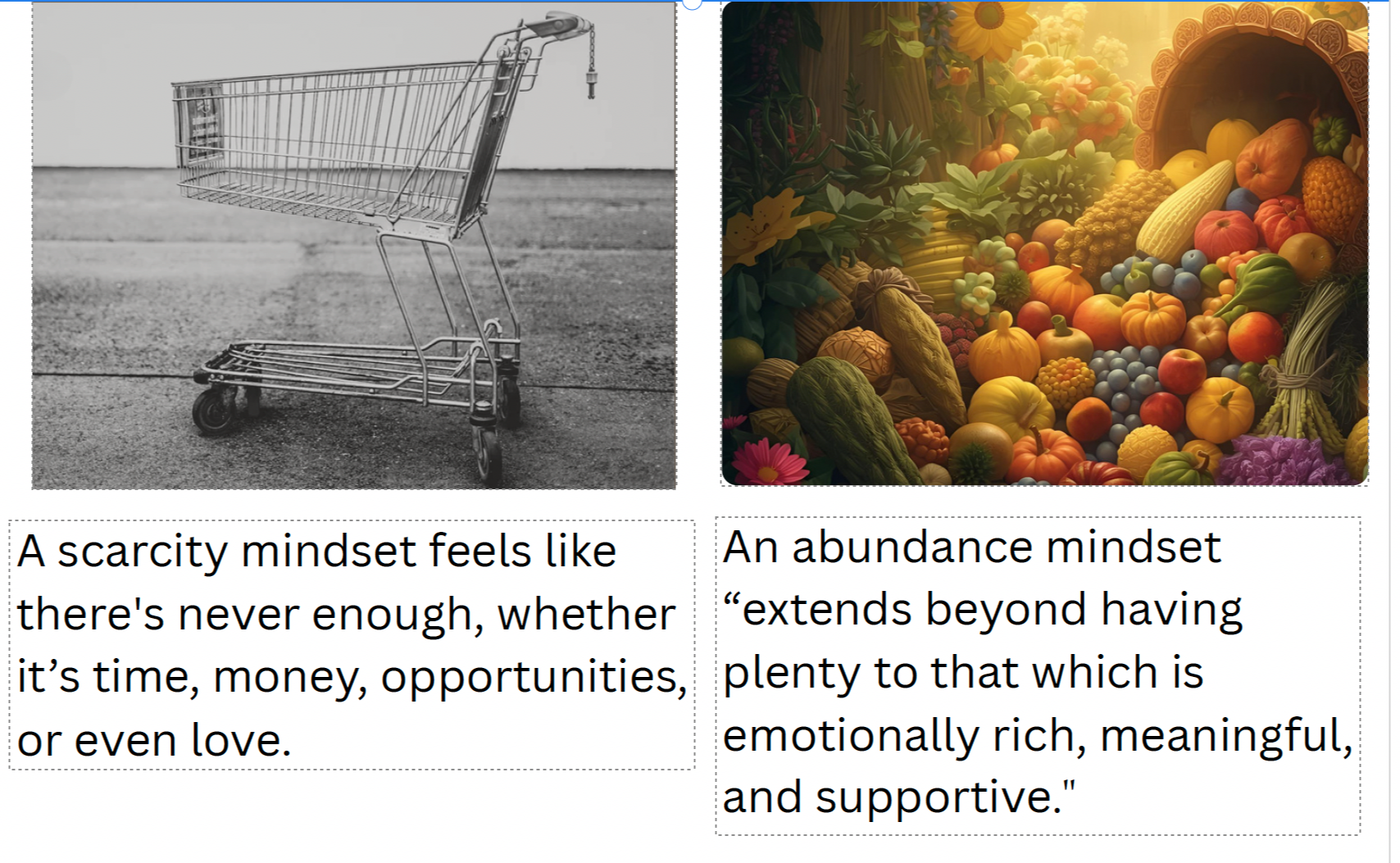Scarcity vs Abundance
Have you ever experienced one (or more) of the following?
Fear of missing out: Constant worry that others have more and experience things you aren’t.
Comparing yourself to others: Focusing on what others have and feeling inadequate as a result.
Difficulty sharing or celebrating: A reluctance to share resources or celebrate others' successes.
Constant striving for more: An insatiable desire for more, even when basic needs are met.
Negative self-talk: Internal dialogue that focuses on shortcomings and limitations.
Difficulty trusting: A tendency to be suspicious of others and their motives.
Holding onto things tightly: A reluctance to let go of possessions or opportunities, even when they are no longer useful.
These tendencies describe a scarcity mindset, often leading to anxiety, fear, and a focus on what's lacking rather than what's available or possible. A scarcity mindset can impact decision-making, relationships, and overall well-being.
Scarcity Mindset in Action
Financial Decisions:
Hoarding money, avoiding investments, or making impulsive purchases out of fear of future lack.
Career Choices:
Sticking to a job you dislike out of fear of not finding another, or hesitating to take risks for advancement.
Relationships:
Feeling insecure in relationships, constantly seeking validation, or being overly possessive.
Personal Growth:
Avoiding new challenges or opportunities due to fear of failure or not being "good enough".
Social Interactions:
Being overly competitive, critical of others, or envious of others’ achievements.
How To Move Toward an Abundance Mindset
If any of this rings a bell for you or someone you know. Consider shifting your or others’ thinking toward an abundance mindset, a rich and fulfilling life filled with gratitude and connection.
As I wrote in my last blog, abundance “extends beyond having plenty to that which is emotionally rich, meaningful, and supportive,” (https://www.debrahollowayphd.com/blog-3-1/abundance ).
Practice gratitude: Regularly acknowledge and appreciate the positive aspects of your life.
Cultivate self-compassion: Treat yourself with kindness and understanding, even when you make mistakes.
Challenge negative thoughts: Identify and reframe negative thought patterns that stem from scarcity thinking.
Focus on what you have: Shift your attention to the resources and opportunities that are already available to you.
Seek out positive influences: Surround yourself with people who are optimistic and supportive.
Practice mindfulness: Engage in activities that help you stay present and reduce anxiety about the future.
Set realistic goals: Break down large goals into smaller, more manageable steps.
Celebrate successes: Acknowledge and appreciate your accomplishments, no matter how small.
Bring abundance into your everyday life to transform yourself, organization, and community.
